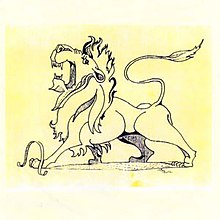
Le Sony'r Ra, better known as Sun Ra, was an American jazz composer, bandleader, piano and synthesizer player, and poet known for his experimental music, "cosmic" philosophy, prolific output, and theatrical performances. For much of his career, Ra led "The Arkestra", an ensemble with an ever-changing name and flexible line-up.
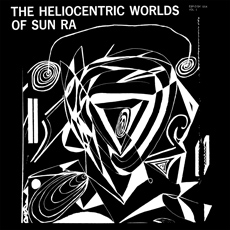
The Heliocentric Worlds of Sun Ra, Volume One is a 1965 album by the jazz musician Sun Ra. The back cover describes it as an "album of compositions and arrangements by Sun Ra played by Sun Ra and his Solar Arkestra".

The Magic City is an album by the American jazz musician Sun Ra and his Solar Arkestra. Recorded in two sessions in 1965, the record was released on Ra's own Saturn label in 1966. The record was reissued by Impulse! in 1973, and on compact disc by Evidence in 1993.
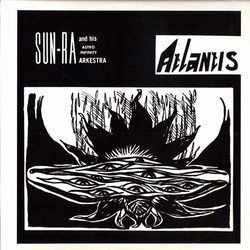
Atlantis is an album by American jazz musician Sun Ra and his Astro-Infinity Arkestra, released in 1969 by El Saturn Records.

Super-Sonic Jazz is the second studio album by Sun Ra, recorded in 1956 at RCA Studios, Chicago. Super-Sonic Jazz was the first album to be released on Saturn Records, the label run by Sun Ra and Alton Abraham, and was one of only three albums by Sun Ra to have been available in the 1950s.

Horizon is a recording by the jazz musician Sun Ra and his Astro-Intergalactic-Infinity Arkestra, forming part of the documentation of their first visit to Egypt.

Sound Sun Pleasure!! is an album by the American Jazz musician Sun Ra and his Astro Infinity Arkestra. Recorded March 6, 1959, it remained unreleased until 1970 when it was issued on the Saturn label. Recorded at the same time and with the same personnel as Jazz in Silhouette, the album is unusual amongst early Ra albums for predominantly featuring jazz standards.

Sun Ra and his Solar Arkestra Visits Planet Earth is a jazz album by the American musician Sun Ra and his Solar Arkestra. Recorded between late 1956 and 1958, the album was originally released on Ra's own Saturn label in 1966, and was reissued on CD by Evidence in 1992. In keeping with many Saturn releases, one side features cuts from the arkestra c.1958, whilst the other side comes from the 1956 sessions originally intended for Sound of Joy but still unreleased in 1966.

Interstellar Low Ways is an album recorded by the American jazz musician Sun Ra and his Myth Science Arkestra, mostly recorded in Chicago, 1960, and released in 1967 on his own El Saturn label. Originally titled Rocket Number Nine, the album had acquired its present name, and the red-on-white sleeve by Claude Dangerfield, by 1969. The album is known particularly for the two songs featuring chants, "Interplanetary Music" and "Rocket Number Nine Take off for the Planet Venus". These would stay in the Arkestra's repertoire for many years:
Rocket Number Nine points toward the music that the Arkestra would be playing on the lower East Side of New York City. The tenor sax solo isn't the work of John Coltrane in 1962, but of John Gilmore in 1960. And not even Ornette Coleman's bassists were playing like Ronnie Boykins at this date.

Fate in a Pleasant Mood is an album by the American jazz musician Sun Ra and his Myth Science Arkestra recorded in Chicago, mid 1960 and originally released on his own Saturn label in 1965. The album was reissued by Impulse! in 1974, and by Evidence in 1993. For the latter reissue, the record was included as the first half of a CD that also featured the whole of When Sun Comes Out, an album recorded by the Arkestra in New York, 1963.
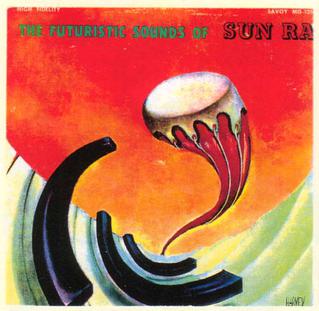
The Futuristic Sounds of Sun Ra is an album by the American jazz musician Sun Ra and his Arkestra, recorded on October 10, 1961, for the Savoy label and released in 1962.

Bad and Beautiful is an album by the American jazz musician Sun Ra and his Arkestra. Recorded in 1961 in New York City at the Choreographers' Workshop, 414 W. 51st St., the album was the second to be recorded in New York by the Arkestra after leaving Chicago, but would remain unreleased until 1972. The album is considered to represent an important transition between the big band approach of the Chicago recordings, and the more 'outside' approach of Ra's smaller bands recorded later in the decade:
'Aside from "Exotic Two," the tunes are split between standards and blues originals, but there are indications of the direction the Arkestra would take throughout the '60s. "Search Light Blues" has some interesting percussion accents finding their way into the arrangement, and "Exotic Two" alludes more clearly to the percussion-heavy sound that dominated many of the '60s recordings. Sun Ra plays piano exclusively on this recording, and Gilmore gets lots of room to shine. A significant transitional LP, this is probably the last "inside" record the Arkestra would record as they forged new sonic paths into the mid-'60s.' Sean Westergaard, All Music Guide link

Secrets of the Sun is an album by the American Jazz musician Sun Ra and his Solar Arkestra. The album is considered one of the more accessible recordings from his 'Solar' period. Originally released on Ra's own Saturn label in 1965, the record was unavailable for many years before being reissued on compact disc by Atavistic in 2008.
'Marking a transition in its development between the advanced swing of the early Chicago-era recordings and the increased free-form experimentation of its New York tenure, this album also reveals the first recorded versions of two Ra standards, "Friendly Galaxy" and "Love in Outer Space." Accessible, yet segueing into vanguard territory, this album highlights a fertile period in the Arkestra's history. Looser and more aggressive than its Chicago recordings, these pieces find the Arkestra pushing at the limits of harmony and tonality.' Troy Collins

For the song by Harold Arden and Ted Koehler, see When the Sun Comes Out
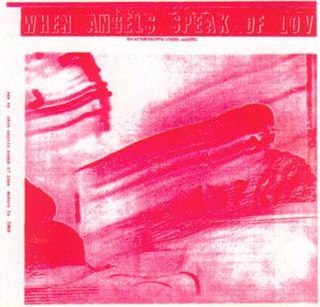
When Angels Speak of Love is a music album by the American Jazz musician Sun Ra and his Myth Science Arkestra. Originally released in 1966 on Sun Ra's own Saturn label, the record would have only been available by mail order or sold at Arkestra concerts, and is one of the rarest of all Saturn releases. The record was reissued on compact disc by Evidence in 2000.

Cosmic Tones for Mental Therapy is an album by the American Jazz musician Sun Ra and his Myth Science Arkestra. Recorded in 1963, but not released until 1967 on Sun Ra's own Saturn label, the record has become one of the most discussed of Ra's New York recordings. The record was reissued on compact disc by Evidence in 2000.

Other Planes of There is an album by the American Jazz musician Sun Ra and his Solar Arkestra. Recorded in 1964, the album had been released by 1966 on Sun Ra's own Saturn label. The record was reissued on compact disc by Evidence in 1992.
'Granted, the selection is certainly not as abrasive and demanding as later efforts, although there is strident involvement from everyone within the dense arrangement. The brass and reed sections provide emphasis behind an off-kilter and loping waltz backdrop. All the more impressive is how well the material has held up over the decades. Even to seasoned ears, the music is pungent and uninhibited, making Other Planes of There a highly recommended collection.' Lindsay Planer

Strange Strings is an album by the American Jazz musician Sun Ra and his Astro Infinity Arkestra. Recorded in 1966, the album was released by 1967 on Sun Ra's own Saturn label. The record was reissued on compact disc by Atavistic in 2007.

Pharoah's First is the debut album by American free jazz saxophonist Pharoah Sanders, recorded in New York City at the loft of audio engineer Jerry Newman on September 10, 1964, and first released in 1965 on the ESP-Disk label. The album was originally issued with the title Pharaoh and was later re-released with the titles Pharoah,Pharaoh Sanders Quintet, Pharoah Sanders Quintet, and Pharaoh's First, and was also included in its entirety in the 2012 4-CD compilation In The Beginning 1963-1964.

In the Beginning 1963–1964 is a 4-CD compilation album by American free jazz saxophonist Pharoah Sanders recorded in 1963-1964 and released in 2012 on the ESP-Disk label. It features previously-unreleased recordings of Sanders performing with groups led by Don Cherry and Paul Bley, complete concert recordings of Sanders' appearances with Sun Ra, a re-release of Sanders' first album, and various interviews.
